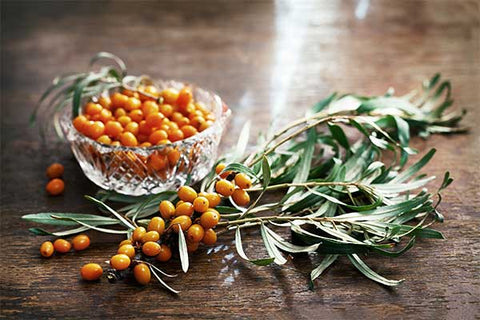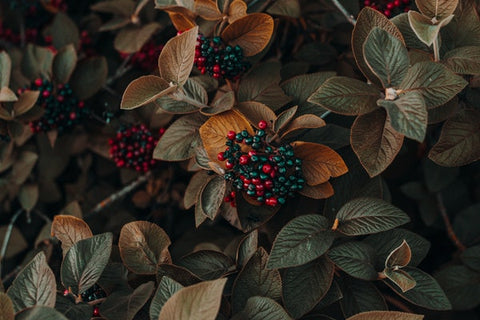Why Berries May be Natural Disease Fighters
- Home /
- News & Reviews
- Why Berries May be Natural Disease Fighters
By Angela Rightout , published Dec 21, 2018
All About Berries
Do you know the benefits of berries and the products they produce such as wine, jams, juices and oils? Furthermore, do you know how berries may or may not prevent oxidative stress? Well, aside from their tastiness, berries have so many perks. They have the ability to be healthy in ways other foods can’t always provide. Berries have antioxidant properties which help fight off pathogens and diseases. But what does all that mean? Many people know berries have antioxidant properties- but many don’t understand what that means for their health. Read on to learn how berries can be beneficial to your dietary needs.
What is a Berry?
By definition, berries are simple fruits with seeds and pulp produced from the ovary of a single flower with a fleshy pericarp. Another, more general definition categorizes berries as small, pulpy and often edible fruits. So how can they help us? And can they hurt us?
Free Radicals & Oxidative Stress
Have you ever been exposed to free radicals? The answer to this question is, of course! Free radicals circulate through our environment. They flow through the air we breathe via cigarette smoke, chemicals, pollution, radiation and even certain household cleaners. But what are they?
Defining Free Radicals
Free radicals are oxygen-containing molecules with an uneven number of molecules. These free radicals can cause a large chain chemical reaction in the body. This is because they react so easily with other molecules. These reactions are called oxidation.
Oxidation can be beneficial or harmful to the human body. Harmful oxidation is called oxidative stress. Oxidative stress occurs when there is an imbalance between free radicals and antioxidants. Antioxidants neutralize the harmful effects of free radicals. Oxidation is normal and a necessary process in the body, Yet, oxidation stress is not good and can lead to harmful effects on the human body such as:
Cancer
Diabetes
Atherosclerosis (hardening of blood vessels)
Inflammatory conditions
High Blood Pressure
Heart Disease
Neurodegenerative Diseases like Parkinson's and Alzheimer's
Signs of Aging
Fighting Against Free Radicals
It’s impossible to avoid all free radicals. In fact, we produce free radicals in our bodies naturally through exercise or inflammation. But, a diet high in sugars, fats and alcohol can contribute to excess free radical production. The best way to fight against free radicals leading to oxidative stress is to increase your antioxidants. Increasing antioxidants will decrease the formation of free radicals.
Some of the best ways to increase antioxidants are through your diet. This is where berries can make their biggest impact
Phenolic Compounds & Berries
Frontiers in Pharmacology published a study that discusses berries and phenolic compounds and their effects on oxidative stress. According to the study, berries have phenolic compounds. Phenolic compounds are a substance found in plants and that have antioxidant properties. They are an essential part of the human diet.
These compounds are produced by thousands of plants recognized all throughout the plant kingdom. They are found mostly in fruits, leaves and seeds. They are often associated with their ability to fight against ultraviolet radiation and pathogens.
Phenolic compounds have a variety of health benefits that are thought to be responsible for the fight against many chronic diseases and cancer. According to the Frontiers' study, they also have antioxidants that help prevent against aging. It states that the phenolic compounds in berries are a solid source to obtain nutrients.
“Berries are... also a rich source of a wide variety of nutritive compounds, including sugars (glucose, fructose) and minerals. (phosphorus, calcium, iron, potassium, magnesium, manganese, sodium and copper)”
Important Nutrients in Berries
Iron and Manganese are important components of antioxidant enzymes. In addition, berries contain a large number of Vitamins, C and E. The vitamins act as major antioxidants and may reduce inflammation. The study suggests that black currants and sea buckthorn berries have a hefty concentration of vitamin C. Sea buckthorn berries have about 600 mg per 100 g of fruit. Even more so, the study states that sea buckthorn oil is a rich source of fatty acids and unsaturated fats. These fatty acids have a beneficial effect on cardiovascular diseases, neurodegenerative disease and cancer.

Also, sea buckthorn oil is considered a good source of healthy phenolic compounds when the oil is extracted from the berry pulp and seeds.
All these compounds combined have a powerful and multi-functional effect on human health.
But, the chemical composition and health benefits of a particular berry depends on a variety of factors. These factors are:
When They are Cultivated
The Time of Harvest
Where it was Grown
Environmental Conditions
Sea buckthorn berries and the products they produce are not the only healthy berry obviously. Darker berries serve as powerful antioxidants as well. Why? For some of the same reasons as sea buckthorn berries. Also, darker berries contain anthocyanins. Anthocyanins are a class of compounds that have natural antioxidant effects. This compound gives plants their rich colors like, red, blue and purple.

Conclusion
In a healthy person, the free radicals are kept in balance with antioxidants. As stated earlier, this prevents oxidative stress. Berries have medicinal effects against diseases associated with oxidative stress like cancer, neurodegenerative diseases and arthritis. They credit the fight against these diseases to a berry’s high phenolic antioxidant content. In addition, berries have high levels of vitamins A, C and E, which may act as antioxidants.
Studies state that berries as a whole are considered a natural gift to human health due to these phenolic antioxidants. Berries and the products they produce are an integral part of human health. But, phenolic compounds vary from berry to berry and the processing method can affect its nutritional value. Food processing procedures like high-temperature treatments are a major factor for destroying nutrients and affecting antioxidants.
The recommended daily intake of phenolic compounds are not known and may be impossible to determine.
Written by Angela Rightout

Angela Rightout is an enthusiastic, innovative writer with extensive experience in content writing, journalism, videography and social media. She earned her bachelor’s degree in broadcast journalism from Loyola University Chicago. She is passionate about well-researched content.
Angela enjoys writing on a broad range of topics from health and wellness to food, technology, entertainment and news.












